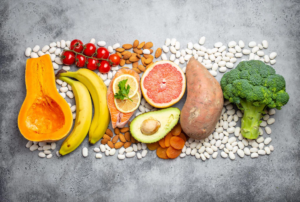FOOD
How to Eat Healthy as a Truck Driver: A Guide from HMD Trucking

Introduction to Healthy Eating for Truck Drivers
Truck driving is often seen as a lifestyle defined by long hours on the road, tight schedules, and limited access to healthy food options. However, maintaining a nutritious diet is crucial for truck drivers, not just for physical health but also for mental clarity and overall well-being. With the right strategies, drivers can turn their vehicles into mobile kitchens, ensuring they have the fuel they need to stay alert and energetic. For more tips on healthy meals for truckers visit https://www.hmdtrucking.com/blog/healthy-meals-for-truck-drivers/.

Eating healthy on the road does not necessarily mean flavorless and no convenience. With a little practice in making informed choices, truck drivers can confidently navigate the aisles of convenience stores and rest stops. Knowledge of the importance of a meal will help to successfully fight fatigue that comes from driving for long periods of time, and it also will help in lowering the risks for chronic conditions such as obesity, diabetes, and heart disease.
In this post, we’ll go through practical tips, meal prep ideas, and snack suggestions that work for truckers. No matter if you are an old-timer or just hit the open road, embracing healthy eating habits can turn your journey into a healthier and more enjoyable experience. Now, let’s take up the challenge together-improving our nutrition!
Understanding the Challenges of Eating Healthy on the Road
Truck driving is a very demanding job; it involves long hours of driving on the road where there are limited opportunities for healthy food. Indeed, being a truck driver tends to put a person in a situation where accessing nutritious food presents enormous obstacles. First, the nature of this work often requires irregular schedules, which makes it hard for truckers to plan meals in advance. All too often, drivers fall back on fast foods and snacks out of convenience stores that are generally high in their caloric, saturated fat, and sugar contents.
Additionally, the absence of refrigeration and cooking facilities in the trucks can limit healthy choices. When the space is very limited, it is easy to fall into the use of pre-packaged meals or processed foods that lack vital nutrients. Stress and fatigue also may present themselves in forms of emotional eating or temptations for quick, unhealthy snacks to get them through a long drive on minimal energy.
Also, by nature, the trucking industry is Sedentary, adding to the problem of weight gain and deterioration of general health. Recognizing these particular challenges is Stage 1 towards making improved food choices on the road, in order that drivers may have a healthier way of life without compromising their duties.
Nutrients a Truck Driver Will Need
As a truck driver, it is very important to eat a balanced diet that will keep your energy level up and make you focused during driving hours. The key nutrients will help you keep awake and healthy.
Take in complex carbohydrates first; these will give you the energy boost your body requires. Whole grains, fruits, and veggies are highly recommended and allow your blood sugar level to stay stable, hence avoiding those mid-drive slumps.
Then, don’t be gentle on the protein intake. Lean meats, beans, and nuts are filling, especially when one is lifting and moving a lot of cargo. Throwing in those healthy fats-avocado and olive oil-can increase brain function and cardiovascular health.
Hydrate evenly; attempt to drink as much water as possible during the shifts. Dehydration leads to fatigue and lack of concentration, resulting in impairment to stay safe on the road.
Finally, there are the vitamins and minerals necessary to keep your immune system and general well-being in good shape, especially those leafy greens and fruits. Nail these keystone nutrients, and you’ll have a complete diet to keep you energized, awake, and fit to drive safely.
Meal Planning Tips for Long Hauls

Meal planning for truckers on the road is essential. You’ll be able to feed yourself with healthy options and will never give in to the temptation of fast food if you have meals prepared. The first step to meal prep is to designate one day per week to preparing your meals for the week. Prep large batches of healthier protein sources, like grilled chicken or turkey, and marry those with whole grains such as quinoa or brown rice.
Think plenty of vegetables-snack-sized portions of colorful stir-fries or roasted mixes that are quick to reheat in the microwave. Store meals in airtight containers and pack healthy snacks, such as nuts, yogurt, or sliced fruits, to manage hunger between stops.
Invest in a cooler for storing perishables and a microwave-safe container for quick reheating. When you plan your meals, think about recipes that can easily be doubled, such as soups or stews, which will last for days. Finally, make yourself a check-off list of staples and change those out every week so you are not bored with what you’re eating. This way, you can eat healthy, keep your energy up, and pay attention to the road ahead.
Healthy Snacking Options for Truck Drivers
- Nuts and Seeds: Almonds, walnuts, or pumpkin seeds are rich in healthy fats and protein, providing a feeling of sustained energy without crashing afterward.
- Jerky: Opt for low-sodium types of beef, turkey, or even plant-based jerky. They too have a great content of proteins, with easy storage as an added advantage.
- Fresh Fruits: Apples, bananas, and oranges are portable and powerhouses of vitamins. What is more, they satiate any cravings of your sweet tooth.
- Vegetable Sticks: Fresh and crunchy carrot and celery sticks are refreshing. They can be enjoyed together paired with hummus to add protein to this snack.
- Whole Grain Crackers: Most people love the crunch of a whole grain cracker. Dip them in cheese or nut butter for extra nutrition.
- Greek Yogurt: A good source of protein; keep cold. In single-serving packs, they are easier to access.
Picking the Perfect Restaurants and Fast Food

It is a little overwhelming to find healthy meals when each side of the road is comprised of fast-food restaurants. However, if you know a little trick or two, you can make some pretty good choices at those restaurants and fast-food places.
First, look for places that offer something they can modify to their liking-salad bars, bowls they can create themselves. In most of these places, you can load up on fresh veggies and lean proteins while bypassing heavy sauces and dressings. When going into a fast-food restaurant, order grilled instead of fried items. Most chains these days have healthy menu options that include salads, wraps, or grain bowls.
Don’t be afraid to request substitutions; most restaurants will honor special requests such as ‘dressing on the side’ or ‘substitute fruit for fries’. Portion control is another way to eat healthy, so consider sharing meals or ordering a smaller size. Finally, try to find local diners and cafes that serve freshly prepared foods instead of pre-packaged meals. With just a little bit of advanced planning, paying attention can keep your body nourished with healthy food so that you remain awake and healthy on the highway.
Hydration: The Importance of Adequate Water Intake
For truck drivers, hydration is of the essence, while it’s something that always seems to take a backseat when out on the road. Keeping your body properly hydrated not only improves the way your body works on the inside but also helps with focus and reaction times-the two most important functions of safety on the highway. Water is the most critical element: maintaining body temperature, digestion, and preventing fatigue, one of the major risk factors for long hauls.
Try to drink at least 8 glasses of water a day, but this will vary depending on temperature and activity. Having a convenient, refillable water bottle can remind you to drink a little constantly throughout the day, rather than when you get thirsty. Remember, too much sugar and caffeine dehydrate the body-so try to balance out the other glass with water or drinks high in electrolytes when you can.
Hydrating foods such as fruits and vegetables also contribute to increasing hydration in your body. Snacks like cucumbers, watermelon, and oranges beat not just the heat but keep your energy high too. Prioritizing hydration means enhancing your general health, improving your driving performance, and making each journey safer and more agreeable.
Conclusion: Make Health Choices a Habit
Eating healthy as a truck driver sometimes seems impossible with the long hours on the road and lack of healthy food choices. But once you have made it a habit, what happens is more than just making healthy choices; it’s about sustainable living to promote one’s health and well-being. First, you should plan your meals in advance. Consider investing in a cooler so that you’ll be able to store fruits, vegetables, and lean proteins, thereby resisting the temptation of fast food.
In addition to that, add in healthy snacks: nuts, yogurt, or whole grain bars. These will give energy without the crash afterward that comes with sugary choices. Make it a habit to stop at local grocery stores instead of convenience stores-this small change can make for better choices.
Second, try to get into a rhythm of eating even on the road. It keeps your metabolism churning the right way and reduces cravings for greasy foods. Remember, it’s about progress, not perfection. So, celebrate those little successes, like choosing the salad over fries, then make larger changes from there. By making conscious, healthy choices a habit, not only do you improve your health, but you enhance the quality of life on the road. Your body, your mind, and your future self will thank you.
FOOD
Casual Dresses: Your Ultimate Guide to Effortless Style

Dressing casually does not have to mean compromising on style. In the hustle and bustle of modern life, women across the globe are constantly seeking out wardrobe essentials that offer comfort without sacrificing elegance or individuality. Amongst these essentials, casual dresses stand out as versatile pieces that can take you from a laid-back brunch to an afternoon stroll in the city with seamless ease.
Understanding Casual Dresses
Casual dresses are characterised by their relaxed fit, comfortable fabrics, and ease of wear. These dresses are designed to be worn in everyday settings where strict dress codes do not apply. Whether you prefer a breezy midi, a playful skater, or a cosy sweater dress, the range of styles is extensive and caters to diverse tastes and body types.
When choosing a casual dress, it’s important to consider the occasion and the level of informality it demands. For instance, a jersey wrap dress could be ideal for running errands, while a flowy maxi might be better suited for a casual date by the beach.
The Convenience Factor
One of the major benefits of opting for casual dresses is the convenience they offer. A single, well-chosen piece can form a complete outfit, sparing you from the decision fatigue of mixing and matching separates. On days when you desire to look put-together with minimal effort, a casual dress is your go-to.
Selecting the Right Fabric
A crucial aspect of picking the perfect casual dress is the fabric. Breathable materials such as cotton, linen, and rayon are ideal for warmer months, while knits and heavier cotton blends will keep you snug in cooler weather. The right fabric not only enhances the dress’s comfort but also impacts its drape and overall aesthetic.
Finding Your Fit
Fit is paramount when it comes to selecting casual dresses. The goal is to find a silhouette that flatters your shape while ensuring you can move freely. An empire waist dress might suit those who prefer a more structured look, whereas an A-line dress allows for more room and is flattering on most body types. A cinched waist can accentuate curves, while a looser fit might cater to those seeking a laid-back vibe.
Colour and Patterns
With casual dresses, the spectrum of colours and patterns is virtually endless. Solid colours offer a canvas for accessories and can easily be dressed up or down. Patterns, on the other hand, can express personality and flair. From classic stripes to floral prints, the choices are plenty, and selecting a design that resonates with your personal style is key.
It’s worth considering the visual effect certain colours and patterns might have. Lighter shades and vertical stripes can have a lengthening effect, whereas darker hues typically provide a slimming appearance.
Accessorising Your Dress
Accessorising is an essential part of completing your casual dress ensemble. Simple additions like a belt can change the silhouette of a dress, while statement jewellery, scarves, or hats can elevate your outfit. Depending on your accessories, you can transform a basic dress into a standout piece fit for any casual occasion.
Seasonal Adaptability
Casual dresses are not confined to a particular season; they can be adapted to suit various climates. Layering is an effective strategy for transitioning a dress from summer to autumn. Adding tights, boots, and a chunky knit cardigan to a dress can keep the chill at bay while maintaining a stylish look.
In warmer weather, pairing your dress with sandals, a sunhat, and lightweight, airy fabrics can offer comfort and protection from the heat. In essence, with the right layers and accessories, your casual dress can be an all-season staple.
Shoes to Complement Your Dress
The shoes you pair with your casual dress can drastically alter its feel. Sporty sneakers can give off an urban, cool-girl vibe, while sandals might lend a more relaxed, Bohemian flair. If you’re looking to add a touch of sophistication, a pair of loafers or ankle boots might be just the right choice.
Durability and Care
Durability is another important consideration for casual dresses. Look for quality stitching and fabrics that can withstand regular washing. Proper care will extend the life of your dress, ensuring that you can enjoy its comfort and style for seasons to come. Always check the label for washing instructions to keep your dress in pristine condition.
Investing in Quality
While it may be tempting to skimp on the cost, investing in a higher quality casual dress can be more economical in the long run. Quality pieces tend to last longer, retain their shape and appearance, and provide better value for your money. Moreover, they can make you feel more confident and comfortable in your everyday wear.
Anchoring your casual wardrobe with a selection of dresses that offer versatility and comfort is a savvy move for anyone looking to simplify their sartorial choices while still making a fashionable statement. The right casual dresses combine functionality with flair, showing that you don’t have to compromise on style to enjoy the full comfort of dressing casually.
In conclusion, casual dresses are a cornerstone of effortless styling. They offer the ease of a one-piece outfit while providing endless possibilities for personalisation through accessories and layering. With careful selection and proper care, these versatile pieces can serve as valuable assets within any fashion-conscious individual’s wardrobe.
FOOD
Nessi Imam Bayildi 18.7oz: A Culinary Delight Worth Exploring

Imam Bayildi is a beloved Mediterranean dish steeped in history, rich flavors, and cultural significance. Among the many variations available today, the Nessi Imam Bayildi 18.7oz stands out as a convenient, high-quality option for those looking to enjoy this classic dish. In this article, we’ll dive deep into the world of Imam Bayildi, exploring its origins, nutritional benefits, and why the Nessi brand’s version deserves a spot in your pantry.
What Is Imam Bayildi?
Imam Bayildi, translating to “the imam fainted” in Turkish, is a traditional dish made from eggplants, onions, tomatoes, garlic, and olive oil. This vegetarian delight is slow-cooked to perfection, allowing the ingredients to meld into a rich and flavorful harmony. The dish is a staple in Mediterranean cuisine and is enjoyed as a main course, side dish, or even as a cold appetizer.
The Legend Behind the Name
The name “Imam Bayildi” is steeped in folklore. One popular tale suggests that an imam (a Muslim religious leader) fainted upon tasting the dish because it was so delicious. Another version claims that the imam fainted after learning about the amount of expensive olive oil used to prepare it. Regardless of which story you prefer, there’s no denying the dish’s ability to leave a lasting impression.
Nessi Imam Bayildi 18.7oz: A Convenient Option
Nessi’s Imam Bayildi in an 18.7oz can offers the perfect solution for those seeking authentic Mediterranean flavors without the time and effort required for traditional preparation. Let’s explore why this product is a game-changer.
1. Authentic Taste
Nessi stays true to the traditional recipe, using high-quality ingredients to deliver the rich, savory flavors that make Imam Bayildi a timeless classic. The blend of tender eggplant, tangy tomatoes, and aromatic garlic ensures an authentic experience with every bite.
2. Ready-to-Eat Convenience
Life can be busy, and cooking a dish like Imam Bayildi from scratch may not always be feasible. Nessi’s ready-to-eat version eliminates the hassle, allowing you to enjoy this Mediterranean delicacy straight out of the can. Simply heat and serve, or enjoy it cold as a refreshing appetizer.
3. Perfect for Various Dietary Needs
As a plant-based dish, Nessi Imam Bayildi is naturally vegan and vegetarian-friendly. It’s also gluten-free, making it an excellent choice for individuals with dietary restrictions.
4. Long Shelf Life
The 18.7oz can is designed for extended shelf life, ensuring you always have a delicious and nutritious meal option on hand. This makes it a practical addition to your pantry, especially for last-minute meals or unexpected guests.
Nutritional Benefits of Imam Bayildi
Here’s a breakdown of the key health benefits:
Rich in Antioxidants
Eggplants, a primary ingredient, are rich in antioxidants like nasunin, which helps protect cells from damage. Tomatoes add a dose of lycopene, known for its anti-inflammatory and heart-health benefits.
Low in Calories
This dish is naturally low in calories, making it an excellent choice for those looking to maintain a healthy weight without sacrificing flavor.
High in Fiber
The combination of eggplant, onions, and tomatoes provides a good amount of dietary fiber, supporting digestive health and promoting a feeling of fullness.
Heart-Healthy Fats
The olive oil used in Imam Bayildi is a source of monounsaturated fats, which are known to support heart health and reduce bad cholesterol levels.
How to Serve Nessi Imam Bayildi
One of the best things about Nessi Imam Bayildi 18.7oz is its versatility. Here are some serving suggestions to inspire your next meal:
1. As a Main Course
Serve Nessi Imam Bayildi warm with a side of crusty bread or over a bed of rice for a satisfying main course.
2. As a Side Dish
Pair it with grilled meats, fish, or other Mediterranean favorites like hummus and tzatziki for a well-rounded meal.
3. As a Cold Appetizer
Chill the dish in the refrigerator and serve it cold as part of a meze platter, alongside olives, feta cheese, and pita bread.
4. In Wraps and Sandwiches
Use Nessi Imam Bayildi as a filling for wraps or sandwiches for a quick and flavorful lunch option.
Comparison Chart: Nessi Imam Bayildi vs. Homemade and Other Brands
| Feature | Nessi Imam Bayildi 18.7oz | Homemade Imam Bayildi | Other Canned Brands |
|---|---|---|---|
| Preparation Time | Ready-to-eat | 2-3 hours | Varies |
| Taste Authenticity | High | Authentic | Depends on the brand |
| Nutritional Value | Preserved | Fresh | May vary |
| Dietary Suitability | Vegan, gluten-free | Vegan, gluten-free | Varies |
| Shelf Life | Long | Short | Long |
| Convenience | High | Low | Medium |
Where to Buy Nessi Imam Bayildi 18.7oz
Nessi Imam Bayildi is widely available at specialty grocery stores, Mediterranean markets, and online retailers. When purchasing online, be sure to check customer reviews and product descriptions to ensure authenticity and quality.
Top Online Platforms to Consider
- Amazon: A trusted platform offering fast delivery and customer reviews to guide your purchase.
- Mediterranean Specialty Stores: Many online stores focus on authentic Mediterranean products and often carry Nessi.
- Local Grocery Chains: Some grocery stores with international sections may stock Nessi products.
Why Choose Nessi Imam Bayildi 18.7oz?
Nessi Imam Bayildi offers an unbeatable combination of authentic taste, convenience, and nutritional benefits. Whether you’re new to Mediterranean cuisine or a seasoned enthusiast, this product makes it easy to enjoy a classic dish without compromise.
Final Thoughts
Imam Bayildi is more than just a dish; it’s a cultural experience that brings the flavors of the Mediterranean to your table. With Nessi Imam Bayildi 18.7oz, you can enjoy this timeless classic with minimal effort. Its high-quality ingredients, ready-to-eat convenience, and versatility make it a must-have for food lovers everywhere. So why wait? Add Nessi Imam Bayildi to your pantry today and savor the taste of tradition.
FOOD
Exploring The Benefits Of Natural Foods For A Healthier Lifestyle

Natural food, unprocessed and free from synthetic ingredients, is gaining popularity fast. Scientific studies show that organic foods have more nutrients and fewer pesticides.
A food scoring system in 2021 even ranked legumes, fruits, and fish as top choices for health. Plus, eating natural foods can lower risks of Type 2 Diabetes and some cancers.
Ready to learn how natural foods can change your life? Let’s dig in!
What Are Natural Foods?
Natural foods are simple, clean, and close to their original state. They avoid synthetic chemicals like preservatives, dyes, or artificial flavors. Fresh produce, lean proteins, whole grains, and healthy fats are great examples.
These foods often come from local farms or organic sources that focus on quality over mass production. Non-GMO options also count here since they skip genetic modifications. Food in its purest form is the best fuel for your body.
Unprocessed foods pack more nutrients than processed ones filled with sugar and unhealthy fats. Organic food shows lower levels of toxic heavy metals like cadmium—great news for long-term health! Choosing chemical-free options supports both your well-being and clean eating goals while reducing exposure to harmful additives.
Moving toward natural choices unlocks countless benefits for a healthier lifestyle ahead!
Key Benefits of Natural Foods

Natural food offers significant health benefits. They can genuinely help you feel healthier, both physically and mentally.
Improved Nutritional Value
Organic produce often contains higher levels of nutrients compared to conventional options. Studies show that pesticide-free fruits and vegetables offer better vitamins, minerals, and antioxidants.
For example, dark leafy greens like spinach pack more iron and calcium when grown without chemicals.
Eating nutrient-dense foods supports overall health. Small fish like sardines provide omega-3s and calcium, while eggs deliver high-quality protein. A diet rich in these options may lower risks of Type 2 diabetes and certain cancers.
Scientific research links organic food consumption with improved long-term health outcomes.
Reduced Exposure to Additives and Preservatives
Cutting out synthetic additives lowers health risks. Many of these chemicals, like artificial dyes or preservatives, can cause allergies and other reactions in sensitive people. Natural foods avoid this by using safer options from plants or essential oils.
These natural substitutes even add nutritional benefits while keeping food fresh.
Synthetic additives have raised safety concerns for years. Regulatory groups in the U.S. and EU keep a close eye on them but differ on what they allow. This makes chemical-free choices more appealing to consumers looking for healthy eating habits.
Choosing clean-label products supports nontoxic lifestyles and sustainable agriculture practices too!
How to Incorporate Natural Foods Into Your Diet
Eating natural foods can feel overwhelming at first, but it doesn’t have to be. Small steps make the process easier and more sustainable.
- Plan Your Meals
Make a weekly meal plan with fruits, vegetables, and whole grains as the focus. This saves time and helps avoid processed food temptations. Plus, having a grocery list stops impulse buying, especially if you shop after a meal instead of on an empty stomach.
- Cook More at Home
Homemade meals give you full control over ingredients. Try easy dishes like vegetable stir-fry or grilled chicken with quinoa. Experimenting in your kitchen makes healthy eating fun and rewarding!
- Choose Whole Grains
Swap refined bread and pasta for options like brown rice or oatmeal. These boost energy and help cut risks of diabetes, heart disease, and cancer over time. Small swaps add up quickly!
- Snack Smartly
Replace chips or candy with raw nuts, fresh fruits, or yogurt drizzled with honey. Keep these snacks handy for busy days when hunger strikes out of nowhere.
- Stay Hydrated
Drink plenty of water throughout the day to reduce appetite and improve metabolism. Aim for 8 glasses daily to support weight management goals while keeping energy levels stable.
- Shop Mindfully
Read labels carefully to pick nutrient-dense foods without added sugars or chemicals hiding inside them! Stick mostly to fresh produce sections instead of packaged or frozen aisles.
- Gradually Add Changes
Start small by replacing just one processed item each week with something natural like apples or carrots instead of sugary snacks—small wins matter!
Conclusion
Natural foods can truly transform your lifestyle. They boost energy, strengthen bones, and improve mental health, laying the foundation for a more balanced and fulfilling life. By incorporating fruits, vegetables, and whole grains into your meals, you’ll not only feel more vibrant but also help safeguard yourself against chronic illnesses. Beyond the health benefits, embracing natural foods supports sustainable agriculture and reduces environmental harm, aligning your personal choices with a global impact. These small changes lead to significant improvements in well-being, creating a ripple effect for your family’s health and happiness. Start today—your body, mind, and planet will thank you!

 Cartoon1 year ago
Cartoon1 year agoUnlocking the Potential of Nekopoi.care: A Comprehensive Guide

 Game1 year ago
Game1 year agoExploring Aopickleballthietke.com: Your Ultimate Pickleball Destination

 BUSINESS1 year ago
BUSINESS1 year agoWhat Companies Are In The Consumer Services Field

 BUSINESS12 months ago
BUSINESS12 months agoUnraveling the Mystery of 405 Howard Street San Francisco charge on Credit Card

 HOME IMPROVEMENT1 year ago
HOME IMPROVEMENT1 year agoVtrahe vs. Other Platforms: Which One Reigns Supreme?

 TECHNOLOGY12 months ago
TECHNOLOGY12 months agoThe Guide to Using Anon Vault for Secure Data Storage

 ENTERTAINMENT8 months ago
ENTERTAINMENT8 months agoUnderstanding Bunkr Album: A Comprehensive Guide

 ENTERTAINMENT1 year ago
ENTERTAINMENT1 year agoThe Epic Return: Revenge of the Iron-Blooded Sword Hound
















